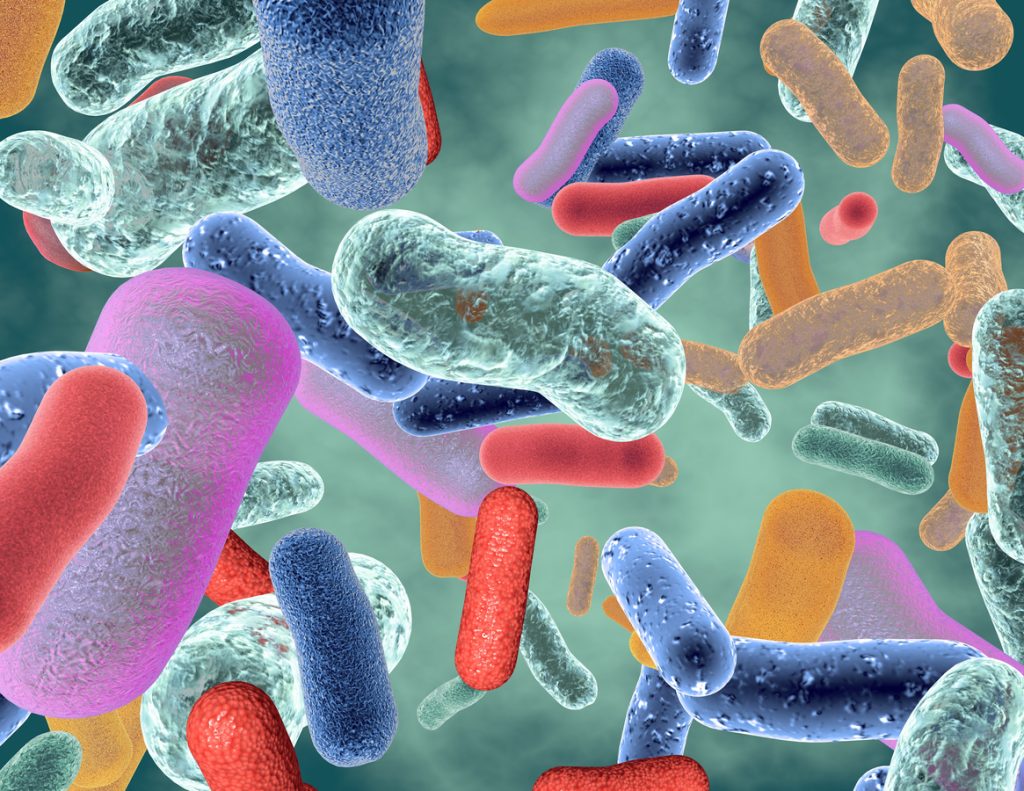Clarkson University Associate Professor of Physical Therapy Ali Boolani is performing research to determine if gut microbiome and metabolomic pathways in the gut could be associated with the personality traits mental energy, mental fatigue, physical energy and physical fatigue.

There are thousands of different types of bacteria living in the gut that are known as gut microbiome. The number of each type of bacteria is determined by many factors, such as health status, dietary habits and even physical activity levels. Gut metabolomes are small molecules, such as amino acids, enzymes and co-factors, that are produced by gut microbiota.
The gut microbiome is known to stay stable through most of one’s adult life, unless there is a gastrointestinal issue or a person is taking antibiotics, and personality traits can take years to change.
Boolani and his colleagues are working to determine if there are unique gut microbiome and metabolomic pathways that are associated with the four personality traits.
Since an analysis for a complete study is costly, Boolani and his co-researchers, Lauri Byerley, Christopher Taylor and Meng Lou at Louisiana State University; Courtney Christopher, Hector Castro, and Shawn Campagna at University of Tennessee; Kristin Ondorak at University of North Carolina at Chapel Hill; Matthew Lee Smith at Texas A&M University; and Karyn Gallivan at American Military University, chose to first perform initial research on a small sample of young physically active adults.
The preliminary findings, published in the journal Nutrients, found that there are distinct bacteria and metabolomes that are associated with each personality trait. One bacterium was associated with three of the four personality traits, but none between all four traits.
The results support Boolani’s previous work that reports that mental energy, mental fatigue, physical energy and physical fatigue are four distinct biological moods, but there may be some overlap – for example, you can be both physically fatigued and physically energetic at the same time.
The study also shows that bacteria and metabolome associated with metabolism were associated with either mental or physical energy, while bacteria associated with inflammation were associated with mental or physical fatigue.
“These new findings support my previous work where we report that feelings of energy are associated with metabolic processes, while feelings of fatigue are associated with inflammatory processes,” says Boolani. “Since we are still learning about the gut microbiome, we don’t know whether if we try to change our personality trait, we might see a change in gut microbiome; or if we try to change our gut microbiome, we might also change our personality trait. Additionally, these findings may help explain some of the interpersonal differences that we see in response to the anti-fatiguing effects of nutritional interventions.”
Clarkson mathematics Ph.D. student Daniel Fuller and Boolani recently published a study in which they reported that the personality traits of mental energy, mental fatigue, physical energy, and physical fatigue are associated with how we respond to an acute caffeine intervention. Although the researchers don’t know whether this response is due to gut microbiota or epigenetic markers, the findings of the current study provide them with some insight into the role that the gut plays in the personality traits.
Next, Boolani and his team plan to duplicate the current study with samples from a much larger number of participants. They recently received a grant to perform the full study and are currently working to gain approval to collect a much larger sampling from participants at both Clarkson and the University of North Carolina at Chapel Hill.
“We hope that the large study will give us more definitive answers and from there we can see if these findings can help explain the interpersonal differences in nutritional interventions meant to modify feelings of energy and fatigue,” says Boolani. “However, this initial exploratory study does guide us in terms of whether we should pursue this line of research to examine the association between gut microbiota and these four personality traits.”
Read the full article at mdpi.com/2072-6643/14/3/466.